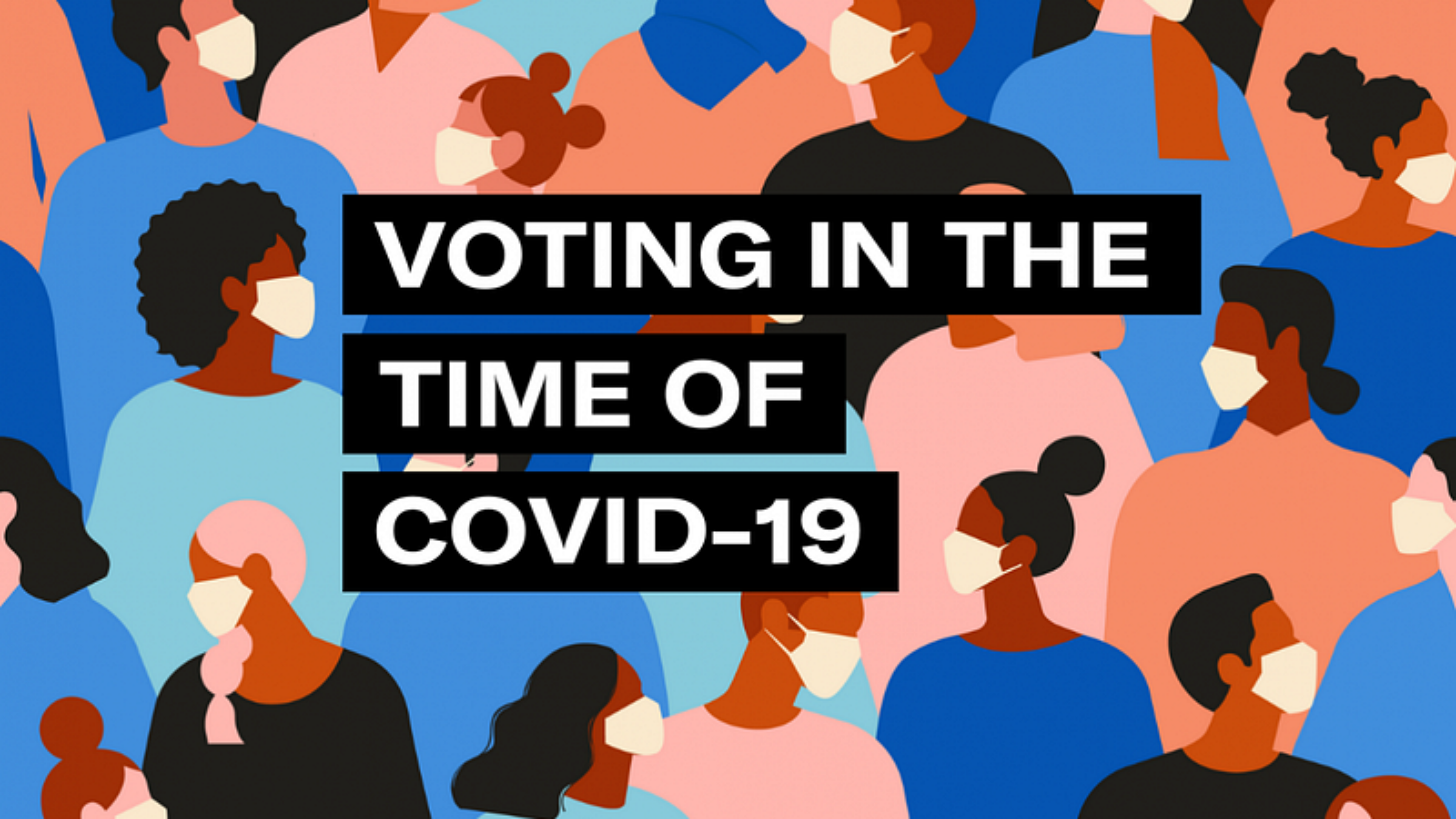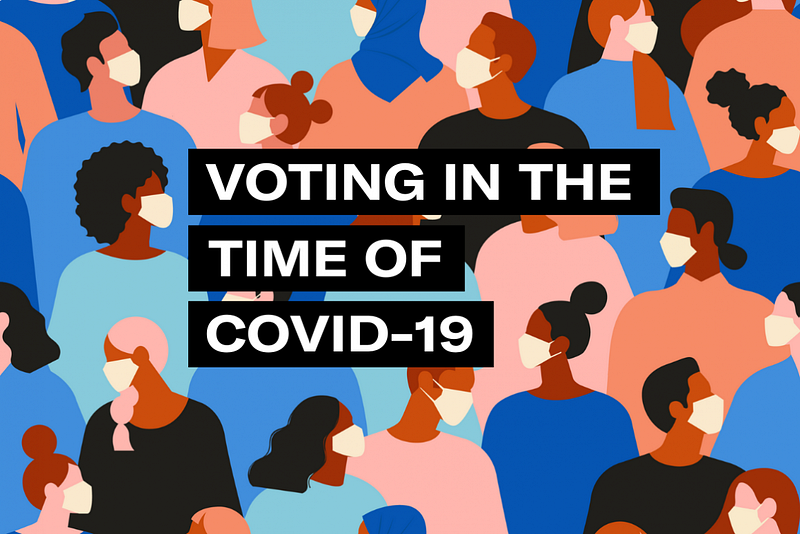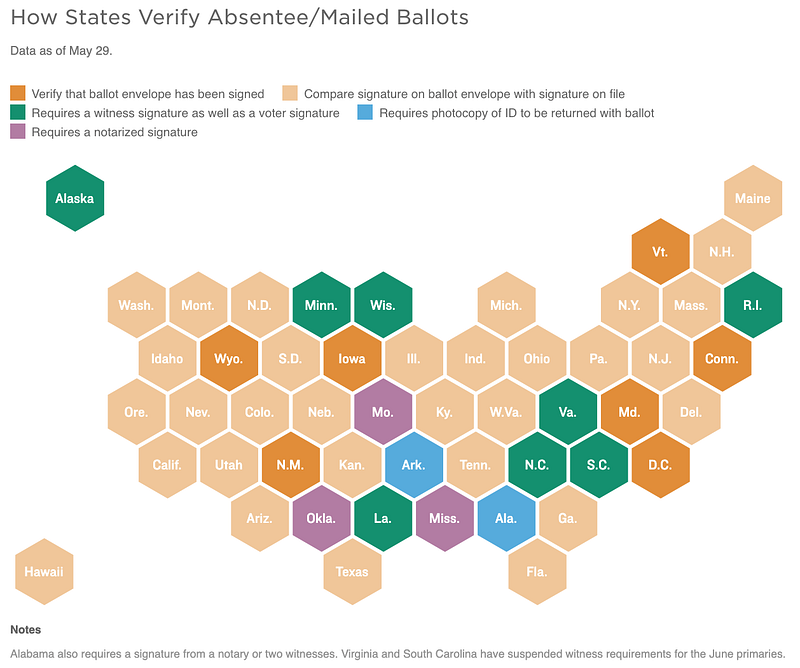Ensuring Election Integrity In 2020: The House Subcommittee on Elections is on the Right Track
June 19, 2020


In the case Yick Wo v. Hopkins (1886), the U.S. Supreme Court declared that voting is “a fundamental political right, because [it is] preservative of all rights.”
During Thursday, June 11th’s House of Representatives Subcommittee on Elections’ hearing, “The Impact of COVID-19 on Voting Right and Election Administration: Ensuring Safe and Fair Elections,” how to properly safeguard the 2020 election season while in the midst of a global pandemic was on everyone’s mind. At the hearing, legislators engaged with a group of witnesses that included: R. Kyle Ardoin, Louisiana Secretary of State; John H. Merrill Alabama Secretary of State; Kristen Clarke, President & Executive Director of the Lawyers’ Committee for Civil Rights Under Law; Mark Dimondstein, President of the American Postal Workers Union; Sherilyn Ifill, President and Director-Counsel of the NAACP Legal Defense and Educational Fund, and Lawrence Norden, Director of the Brennan Center for Justice Election Reform Program.
One attendee likened having to choose between the right to vote and one’s health as ‘the ultimate poll tax.’
After months of debate and numerous imperfect primary elections, there seems to be an emerging consensus that to best ensure safe and fair elections multiple policies must be adopted. As Sherilyn Ifill of the NAACP put it, we need to have a strategy that encompasses both absentee voting and safe in-person voting, not just one or the other.
With various state primaries and runoffs still on the horizon, the general election approaching in November, and the persistence of the COVID-19 threat, most agreed that action to ensure safe and fair elections is important and that identifying and implementing the appropriate set of policies for each state is crucial.
The CARES Act, passed in late March, allocated $400 million toward the Help America Vote Act (HAVA) emergency funds to help states to prepare for and respond to COVID-19 during the 2020 federal election cycle. Even with these emergency funds to support states’ election administration, there remains great disparity among states in terms of their levels of infrastructure equipped to handle absentee voting. Some states, particularly ones that don’t currently have no-excuse absentee voting, are concerned they won’t be able to handle a massive influx of absentee ballots and online registration — a problem borne out by the recent primary in Pennsylvania. When asked during the subcommittee hearing if their state would be able to support an election one-hundred percent by mail, the secretaries of state from Louisiana and Alabama both responded with an unequivocal no.
While much attention is being given to the crucial expansion of vote-by-mail, in-person voting should not be neglected. In-person voting is inevitable, so it’s important to make it as safe as possible. If we’ve learned anything from the recent election primaries in Wisconsin and Georgia, it is how terribly wrong well-intentioned policy changes can go. Election officials in both states reduced polling location numbers to minimize in person crowding, and many voters were encouraged to cast absentee ballots by-mail. But delivery delays and underprepared election infrastructure, among other problems, led to extraordinary wait times at the polls and many voters feeling unsure that their mailed ballots would count.
Extended Early Voting
To help disperse the amount of voters at a polling site at a given time, extending the time period for early in-person voting is a must for all upcoming elections. Kristen Clarke, of the Lawyers’ Committee for Civil Rights under Law stated that, “Congress should mandate that all states provide at least two full weeks of early in-person voting in federal elections during the pandemic, and until a vaccine is widely available and accessible to all people in the country.”
Recruiting Younger Poll Workers
A huge proportion of poll workers, which typically consist of retirees and elderly people — a population considered high-risk for COVID-19 complications — are, for their own safety, choosing not to work polling sites this election cycle. With poll workers essential to ensuring in-person voting can occur, it is imperative that younger people (those considered low-risk for COVID-19 complications) be recruited as poll workers to help fill the void left by their elderly counterparts. Recruiting more poll workers allows for more voting sites which, in turn, helps alleviate long waits and high concentrations of people.
In-Person Voting Safety Precautions
In a statement to the Subcommittee on Elections, Lawrence D. Norden, Director of the Election Reform Program at the Brennan Center for Justice at NYU School of Law, asserts that to take steps to ensure in-person voting can be conducted safely, jurisdictions must:
- Supply personal protective equipment for poll workers, along with hand sanitizer, gloves and cleaning supplies for the polling places
- Provide supplies such as plexiglass sneeze guards, floor markings, and single-use pens to minimize contact between voters and workers
- Arrange for curbside voting for voters who cannot safely enter the polling place

Lifting Absentee Voting Restrictions
Another issue is the current inconsistency among states regarding absentee voting. Twenty-nine states allow no-excuse absentee voting, meaning any registered voter can, for any reason, request an absentee ballot and vote by mail. Five states (CO, HI, OR, UT, WA) conduct their elections entirely by mail, with all registered voters receiving a ballot by mail. But some states, such as Louisiana and Alabama, have very strict restrictions on absentee voting. As of May 29, seven states ( RI, WI, MN, VA, SC, NC, LA, AK) still require a witness signature as well as a voter signature to request an absentee ballot, and three states (OK, MO, MI) require a notarized signature.
In Louisiana, their current emergency election plan adds an extra six days of early voting, expands who can vote absentee (though still requires a witness signature to request a ballot), and requires personnel protective equipment be available at polling sites. Far from robust, this modest emergency plan only applies for the state’s upcoming elections in July and August.
By declaring a state of emergency, several states have given their respective secretaries of state the power to loosen absentee voting restrictions. However, with these state of emergency declarations set to expire soon, the emergency plans designed to ensure fair and safe voting during the pandemic may not extend to November’s general election. Therefore, as underscored by the Subcommittee of Elections’ hearing, it is imperative that a mixed policy approach be implemented on the federal and state level in order to preserve election integrity.
By: Maya Jamroz, Congressional Policy Intern, Millennial Action Project






Join 1,900+ BIPARTISAN LEADERS NATIONWIDE
Be a part of a network of lawmakers committed to governing effectively, passing more representative public policy, and increasing public trust in democracy.